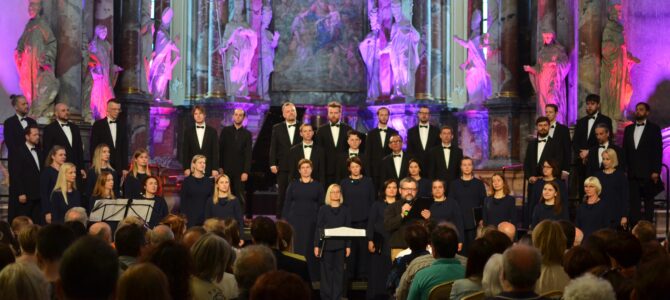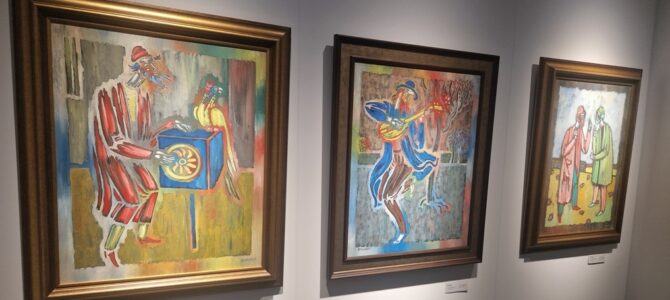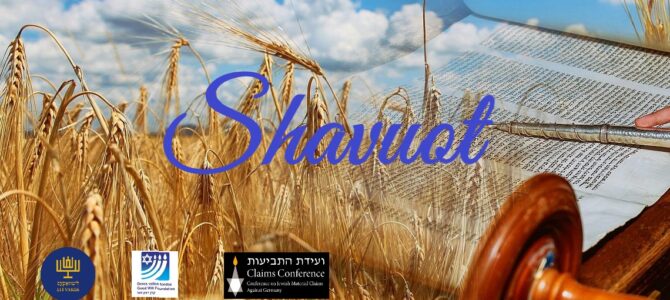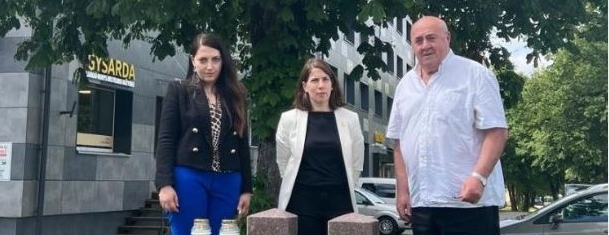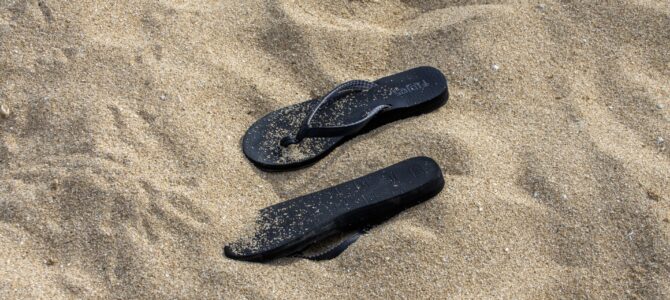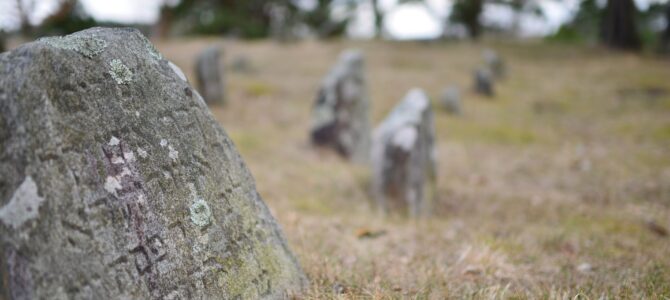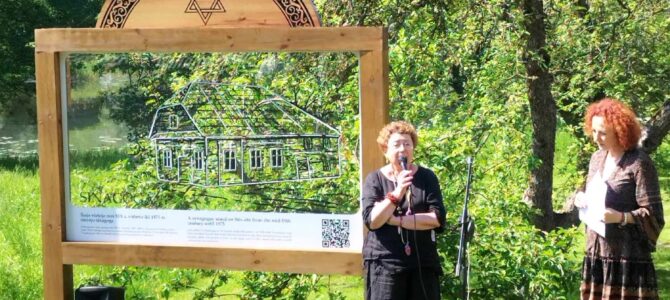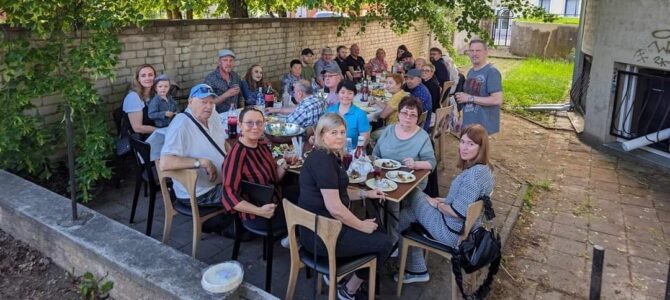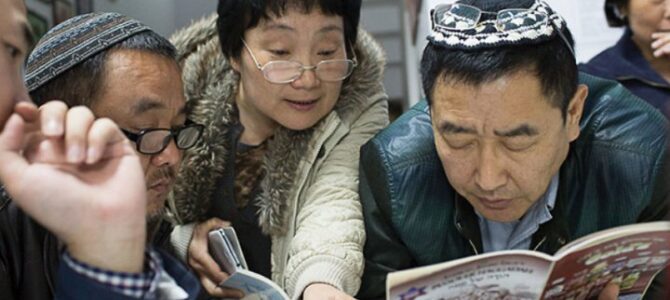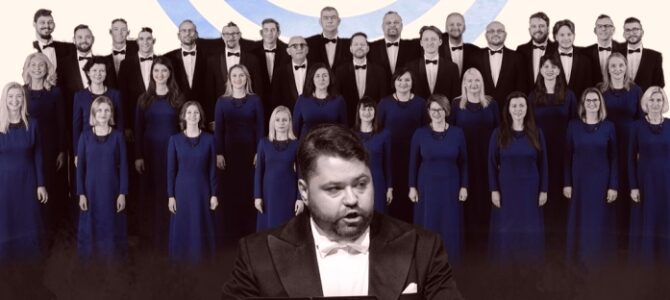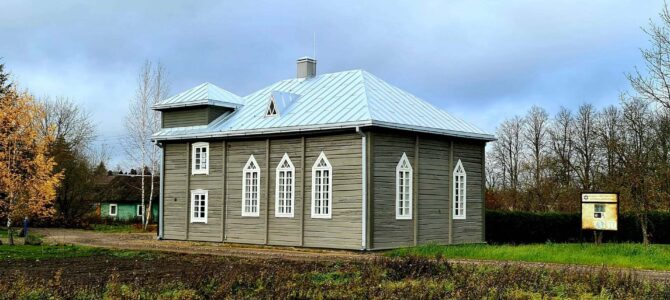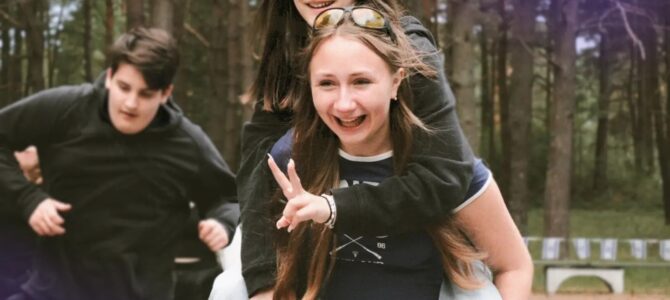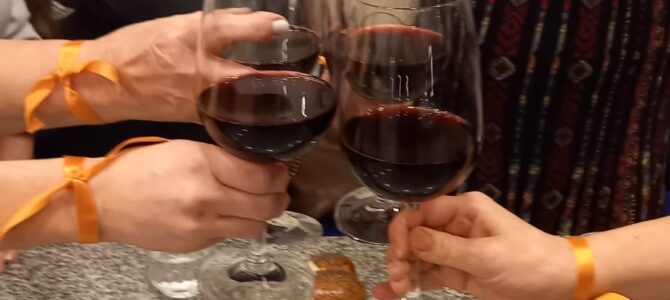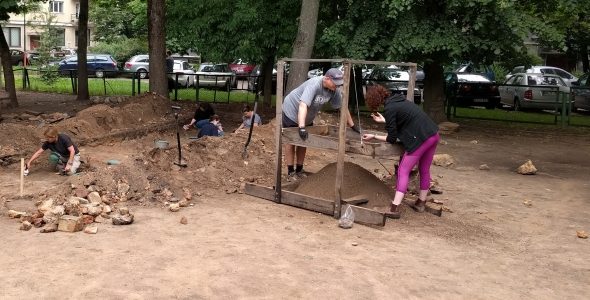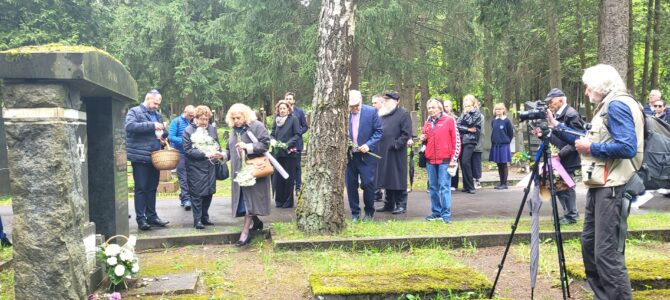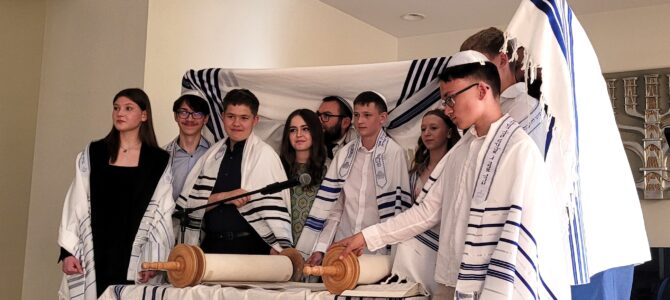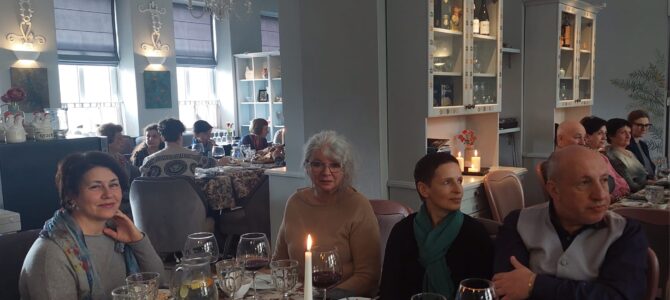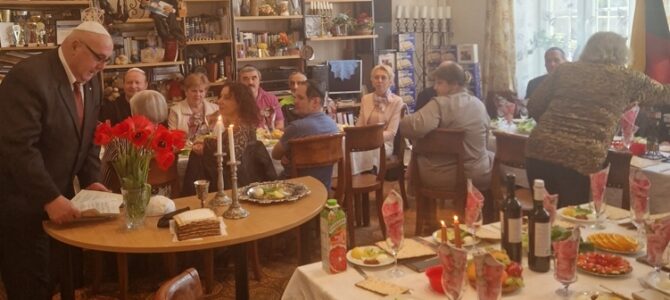At 7:00 P.M. on June 4 the Shalom Culture and Music Festival presents a concert at the Church of St. Kotryna (aka St. Catherine) in Vilnius, with performances by opera soloist Rafailas Karpis, violinist Boris Kirzner and the Vilnius State Choir conducted by Artūras Dambrauskas. This will be the first performance in Lithuania of “Wagon of Shoes” by Lee Kesselman. The concert program is to include works by Jewish composers for solo and choir.
“Wagon of Shoes” is a work for choir, soloist, piano and violin by Lee Kesselman based on the poem by Abraham Sutzkever, Yiddish poet, Jewish partisan and survivor of the Vilnius ghetto. The Jewish composer lives in the USA and wrote the piece for the 700th anniversary of Vilnius under commission by the Lithuanian Consulate in Chicago and the Dainava Choir of the Lithuanian Community in Chicago. The premiere took place in June of 2022 in Chicago.
The Shalom Culture and Music Festival is being held in eleven Lithuanian cities and towns from May to October of 2024. The half-year tour will feature classical and contemporary music, klezmer, improvisational jazz, exhibitions and artistic activities. Musicians and singers from Lithuania, Latvia, Estonia, Ukraine, Germany and Israel will participate in the festival. This year’s festival program includes over 20 concerts in concert halls in Vilnius, Kaunas, Šiauliai and Palanga, the Old Zapyškis Church, synagogues in Alytus, Joniškis, Kėdainiai, Pakruojis and Žiežmariai and at the former Telšiai yeshiva.
